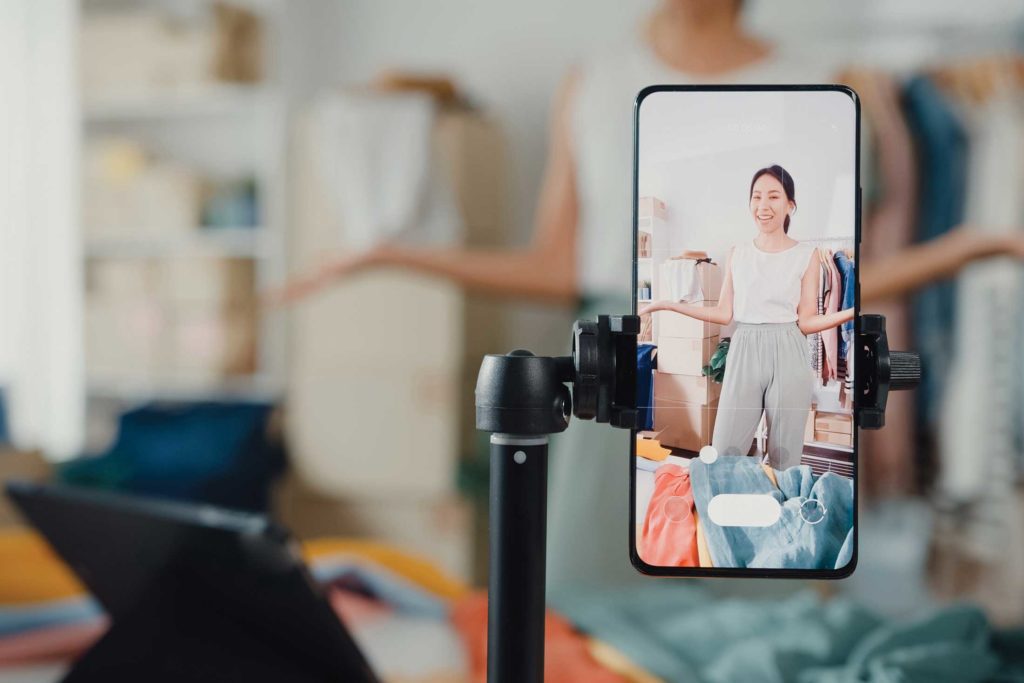Facebook has long been searching for the perfect blend of social and eCommerce. Since the launch of dynamic product ads in 2015, Marketplace and product tagging in 2016, and Instagram Shopping in 2017, Facebook has made small strides towards this goal of frictionless commerce, but something still seemed to be missing. They may have just found the missing piece with the recently announced launch of Facebook Shops.
Facebook Shops aims to empower small businesses and global brands to bring their businesses online by building a single place for consumers to browse and purchase products across Facebook and Instagram. Brands will be able to customize the look and feel of their shop from collections of different products to cover images and accent colors.

With future plans to integrate across the rest of their family of apps, Facebook Shops has the potential to create the ideal frictionless shopping experience for consumers.
Why There’s Potential
Product discovery is continuing to grow within Facebook and Instagram through their advanced algorithms that predict the types of content users are most likely to engage with based on browsing and purchase behavior. Increased discovery will increase product demand, leading to a need to efficiently capture this demand. In order to do this, brands must reduce the barriers that exist during the purchase journey. Baymard Institute’s recent study found that 1 in 5 people abandon their cart due to a long and complicated checkout process.

By bringing everything in-platform, Facebook Shops looks to solve cart abandonment issues by allowing users to purchase products without needing to rely on external websites.
What if your brand is struggling to get products in front of consumers organically and must rely on paid spend to drive demand? Facebook tried to address this with the release of Instagram Checkout in early 2019, which allows users to purchase products within the app.
The drawback to this was a disconnected journey where users could only purchase a product if they found it organically on the brand’s profile or in the discover section. With these new updates, users will be able to purchase products directly from paid ads without leaving the platform or searching elsewhere. Ultimately, brands will be able to capture the demand with the scale of paid ads.
This will also impact how brands interact with consumers. A Facebook study found 61% of people had messaged a business in the last 3 months and 69% of people said being able to message a business helps them feel more confident about the brand. Given the rise in importance of messaging with consumers, the future plans to incorporate Shops into Messenger, WhatsApp, and Instagram Direct will only help brands engage with consumers. Brands will be able to provide product recommendations, which can then be purchased directly in chats, and then follow-up with purchase confirmations and tracking details to round out the entire purchase journey.

How to Set Up
Setting up a Facebook Shop is free and simple if you have an existing product catalog that is tied to a product feed. For the best customer experience, you will need to set up a Commerce Manager account within Facebook to enable purchasing directly within the platform. Shops can still be created without a Commerce Manager account, but consumers will be directed to your website to purchase.
Curated collections can be created by selecting specific products from your catalog and customized with accent colors and cover images to maintain the look and feel of your brand. These will be featured in your shop section on your Facebook or Instagram profiles.
Facebook is also working with partners like Shopify, BigCommerce, WooCommerce and many more to help get businesses onboarded, so be on the lookout for more information as this new feature is rolled out to everyone.
What It Means
We are very excited to see possibilities of Facebook Shops. This could very well be a game-changing commerce experience for both brands AND consumers, which we don’t get to say too often. Does this have the potential to eventually help Facebook compete with eCommerce giants like Amazon? Only time will tell, but the future looks promising.







